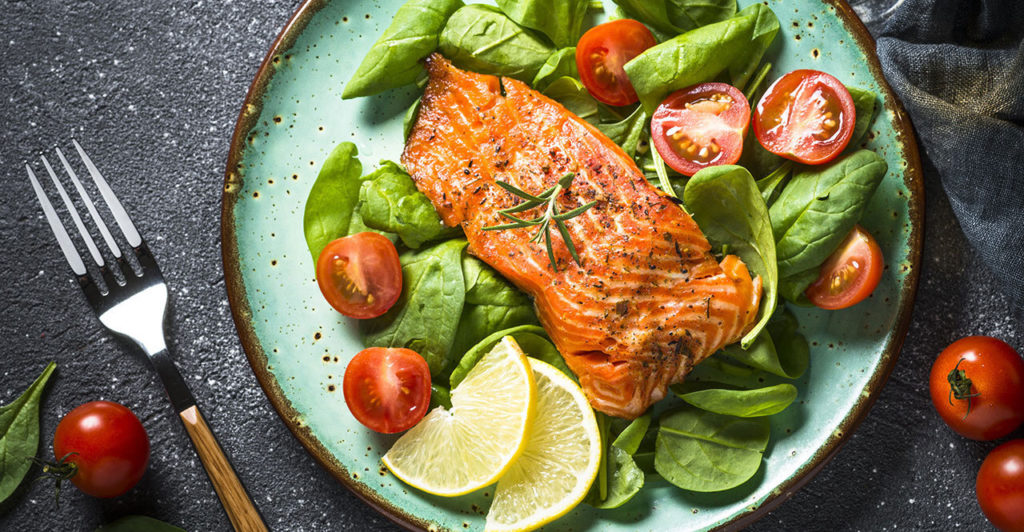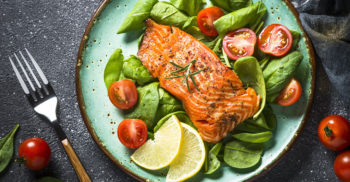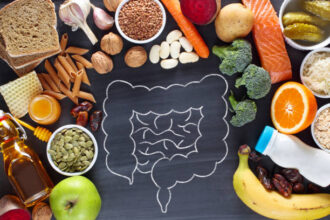 Reading Time: 6 minutes
Reading Time: 6 minutesAs you navigate your 30s, 40s, and beyond, balancing career, family, and personal goals can strain your mental health. Stress, anxiety, or brain fog often creep in, impacting your daily life.
What if your diet could help you feel calmer, sharper, and more resilient? Science shows that nutrition profoundly influences mood, anxiety, and cognitive function, with omega-3 fatty acids, B vitamins, and the gut-brain axis playing starring roles. In this article, we’ll explore how food shapes your mind and offer practical strategies to boost mental well-being, tailored for busy people seeking clarity and balance.

The Nutrition-Mental Health Connection
Your brain is a powerhouse, consuming 20% of your body’s energy. It demands a steady flow of nutrients to regulate emotions, maintain focus, and handle stress. Diets high in processed foods, sugars, or lacking essential nutrients can disrupt these processes, contributing to anxiety, depression, and cognitive decline.
In contrast, nutrient-dense foods support neurotransmitter production, reduce inflammation, and nurture a healthy gut, all vital for mental clarity. For midlife adults, this is critical—aging naturally alters brain function, and stressors like work or poor sleep can amplify these changes. By optimizing your diet, you can protect your mental health and enhance cognitive longevity. Let’s dive into the key players: omega-3s, B vitamins, and the gut-brain axis.
Omega-3 Fatty Acids: Brain Food for Mood and Focus
Omega-3 fatty acids, abundant in fatty fish like salmon, mackerel, and sardines, as well as walnuts, flaxseeds, and chia seeds, are essential fats your body cannot synthesize. Eicosapentaenoic acid (EPA) and docosahexaenoic acid (DHA), two types of omega-3s, are integral to brain cell membranes and function.
These fats influence serotonin and dopamine pathways, stabilizing mood and reducing symptoms of depression and anxiety. They also combat chronic inflammation, which can impair brain health, creating a calmer neural environment. Additionally, DHA supports brain plasticity, aiding memory and learning—key for staying sharp as you age.
To get your full dose of omega-3s, aim to eat fatty fish two to three times weekly, such as grilled salmon or canned sardines, a tasty and convenient alternative to tuna. Vegetarians can sprinkle ground flaxseeds into smoothies or oatmeal for a plant-based omega-3 source. If these kinds of foods aren’t your game, a high-quality fish oil or algae-based supplement may help.

B Vitamins: The Stress-Busting Nutrients
B vitamins, especially B6, B9 (folate), and B12, are crucial for brain function and emotional resilience. You’ll find them in leafy greens, eggs, lean meats, whole grains, and fortified cereals. These vitamins drive energy production and neurotransmitter synthesis, directly affecting mood and stress response.
For instance, B6 helps produce serotonin and GABA, calming neurotransmitters that ease anxiety, while B12 and folate support dopamine, which is linked to motivation. B vitamins also help to regulate cortisol—the stress hormone—helping you stay balanced under pressure. Importantly, low B12 levels are tied to memory issues and cognitive decline, a concern for older adults.
Feeling foggy, tired, or irritable may signal a B vitamin deficiency, particularly for vegetarians or vegans, as B12 is mainly in animal products. Aging also reduces B12 absorption, making fortified foods or supplements vital for those over 40. To boost intake, incorporate spinach, kale, or lentils for folate, and eggs or poultry for B6 and B12. Vegetarians can use nutritional yeast for B12. A B-complex supplement may help high-stress individuals.
The Gut-Brain Axis: Your Second Brain
The gut-brain axis is a dynamic communication network linking your digestive system and brain via the vagus nerve, hormones, and the gut microbiome—trillions of microbes in your intestines. A healthy gut supports mental health, while an imbalanced one, often caused by poor diet or stress, can contribute to anxiety, depression, and cognitive issues.
About 90% of serotonin, your “feel-good” chemical, is produced in the gut, and a diverse microbiome enhances this process. A healthy gut also curbs systemic inflammation, which can disrupt brain function, and regulates the hypothalamic-pituitary-adrenal (HPA) axis, governing stress responses.

Natural products for healthy bowel. Top view
For midlife adults, processed diets, antibiotics, or chronic stress can harm gut health, leading to bloating, mood swings, or brain fog.
To support your gut, consume prebiotic foods like garlic, onions, bananas, and asparagus to feed beneficial bacteria. Probiotic-rich fermented foods, such as unsweetened yogurt, kefir, kimchi, or sauerkraut, introduce live microbes. High-fiber foods like whole grains, fruits, and vegetables promote microbial diversity—aim for 25–30 grams of fiber daily. Limiting processed foods and sugary snacks prevents harmful bacteria from thriving.
A Brain-Boosting Diet Plan
Ready to eat for better mental health? Here’s a sample one-day meal plan for busy adults, blending omega-3s, B vitamins, and gut-friendly foods:
-
Breakfast: Greek yogurt with mixed berries, chia seeds, and oats.
-
Lunch: Grilled salmon over a spinach and avocado salad with a whole-grain roll.
-
Snack: Walnuts and an apple.
-
Dinner: Stir-fried chicken or tofu with broccoli, garlic, brown rice, and kimchi.
Stay hydrated with 8–10 cups of water daily to aid digestion and brain function. Limit alcohol and caffeine, which can disrupt sleep and heighten anxiety.

Lifestyle Factors to Enhance Nutrition
Nutrition lays the foundation, but mental health flourishes with a holistic approach—we do not live by bread alone. Getting 7–9 hours of sleep each night supports brain repair and mood regulation. Making sure to get in at least 30 minutes of moderate exercise, like brisk walking, boosts endorphins and reduce stress and depression. Mindfulness practices, such as meditation or journaling, can calm the mind, amplifying the benefits of a nutrient-rich diet.
Overcoming Dietary Challenges
Adopting a brain-healthy diet can be challenging with time constraints, budgets, or dietary restrictions. To save time, prepare meals in bulk or use frozen fish and vegetables for quick nutrient boosts. On a budget, opt for affordable options like canned sardines, lentils, or oats. For vegan, gluten-free, or other needs, consult a dietitian to customize your plan. If you suspect nutrient deficiencies or persistent mental health issues, see a healthcare provider for blood tests or guidance on supplements or therapy.

Foods to Prioritize for Mental Health
To optimize your diet for mood, anxiety, and cognition, focus on these nutrient-dense foods:
-
Fatty Fish: Salmon, mackerel, and sardines for omega-3s.
-
Leafy Greens: Spinach and kale for folate and fiber.
-
Fermented Foods: Yogurt, kefir, and kimchi for probiotics.
-
Whole Grains: Oats and brown rice for B vitamins and fiber.
Supplements to Consider
If your diet lacks certain nutrients, supplements can help:
-
Fish Oil or Algae-Based Omega-3s: For those low on fatty fish intake.
-
B-Complex: To support stress and energy in high-pressure lifestyles.
-
Probiotics: To enhance gut health if fermented foods are limited.
-
Vitamin D: Often paired with omega-3s for mood support, especially in winter.
Nourish Your Mind, Thrive in Midlife
Your diet is a powerful ally for mental health, influencing mood, anxiety, and cognitive function. By embracing omega-3s, B vitamins, and gut health, you can build resilience and clarity in your 30s, 40s, and beyond. Start with small changes—add a serving of salmon, swap a sugary snack for walnuts, or include a probiotic-rich yogurt. These steps accumulate, helping you feel sharper, calmer, and more in control. What’s your next brain-boosting meal? Share your ideas in the comments and let’s inspire each other to thrive!












